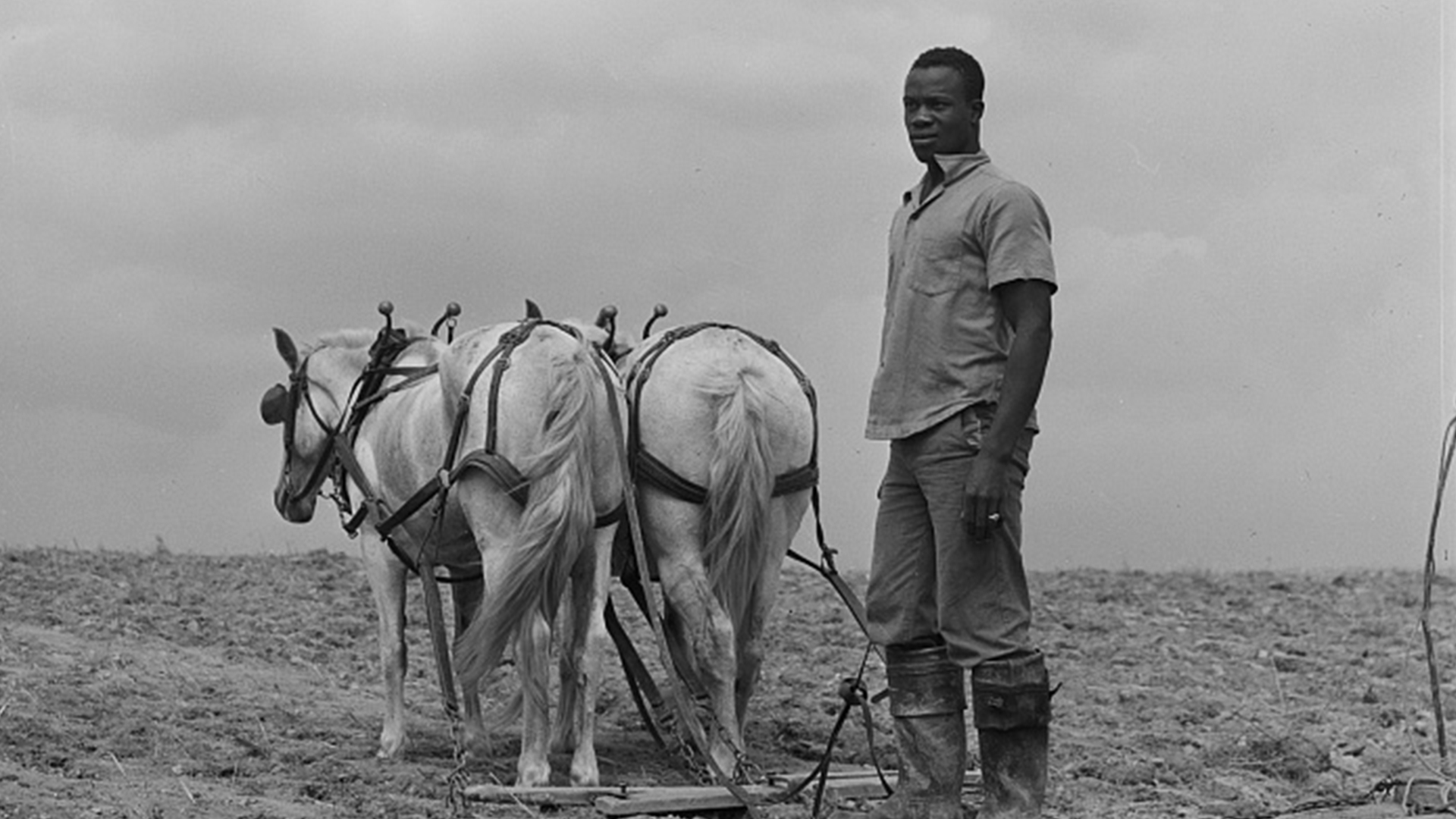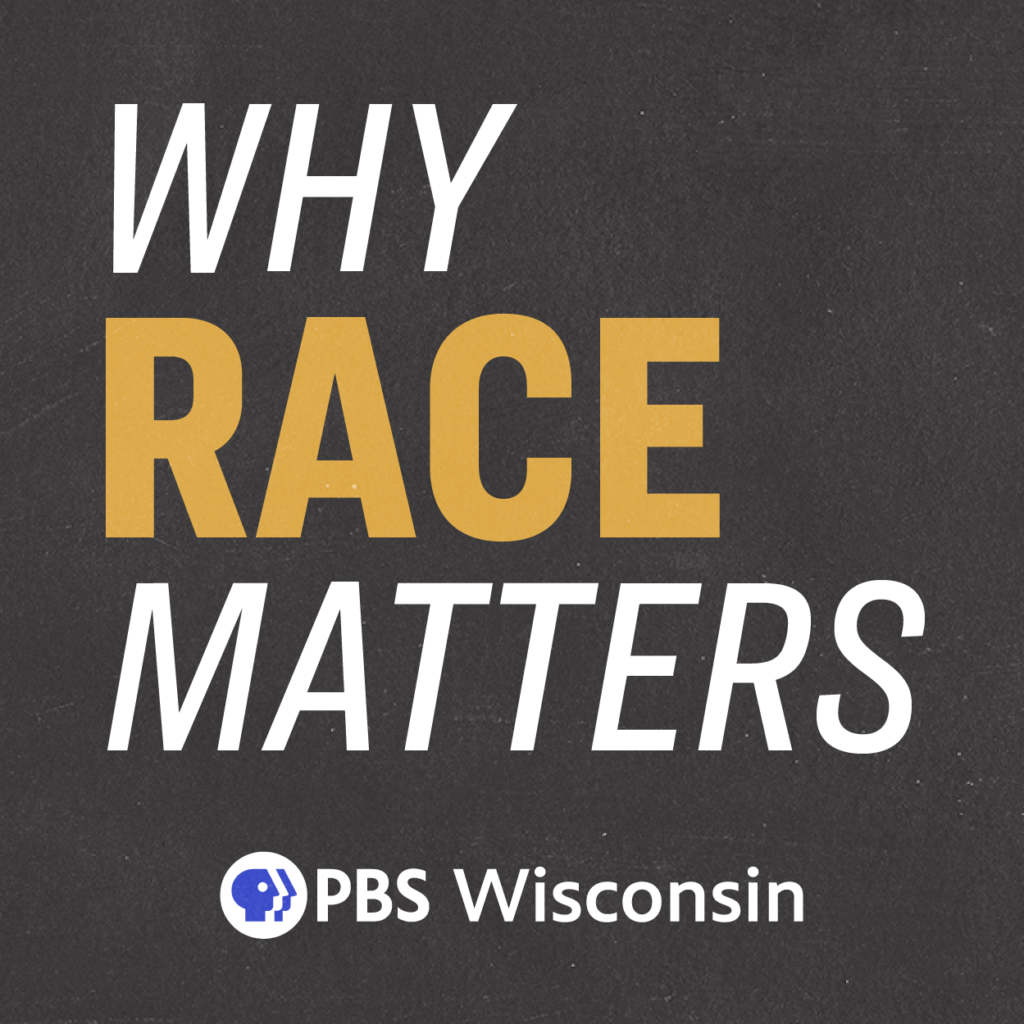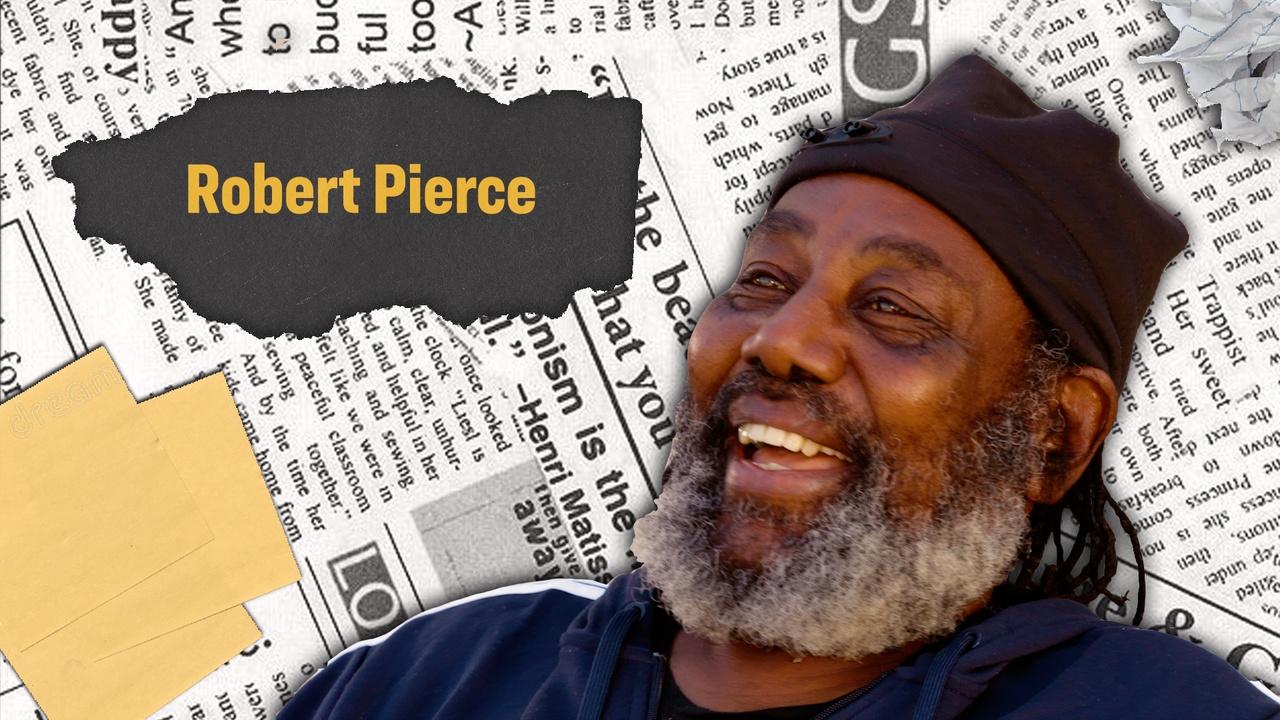Black Farming and Land Ownership
"Growing your own food where you don't have to answer to anybody, is power."—Robert Pierce

From the Library of Congress Prints and Photographs Division. "Young Negro farmer working on the field of Mr. Miller's farm. Mr. Miller is the only Negro farmer on Rumsey Hill, submarginal farm area near Erin, New York." 1940. Photographer Jack Delano.
GARDENING RESOURCES FOR BEGINNERS
Black Girls With Gardens
BGWG is a collective dedicated to providing answers, tips and inspiration to women of color interested in gardening.
Nyajai Gardens
Nyajai, affectionately known as the “Garden Goddess on the south side of Chicago,” began gardening in 2020 and invites us to join with her as she connects gardening to many intersecting spheres of life – health and wellness, community, food security, and a sustainable planet.
Farming While Black
In Farming While Black, author Leah Penniman offers a comprehensive manual for African-heritage people ready to reclaim their rightful place of dignified agency in the food system. This one-of-a-kind guide provides readers with a concise “how-to” for all aspects of small-scale farming.
10 Black Gardeners You Should Be Following on Instagram
Growing Places of Indy provides recommendations on their blog of Black gardeners to follow on Instagram. The list offers a place to begin connecting with Black growers throughout the nation.
Let’s Grow Stuff
Let’s Grow Stuff, a PBS Wisconsin production, is designed to help the beginning gardener learn the tools of successful vegetable and herb gardening. Each episode provides quick and easy techniques to make growing fun!
Got Dirt? Gardening Initiative of the Wisconsin Department of Health Services
Wisconsin’s Department of Health Services Nutrition and Physical Activity Program developed “Got Dirt?” to assist with the implementation of school, community and child care gardens.
University Place: Creating an Edible Landscape
Samantha Peckham, Horticulturist at Olbrich Botanical Gardens in Madison, explains how to transform your existing landscape into a place where herbs, fruit and vegetables thrive among existing perennials, trees and shrubs. Presented by University Place, a PBS Wisconsin production.
University Place: Gardening as We Age
Mark Dwyer, manager of Landscape Prescriptions by MD, encourages people to continue to garden throughout their lives. Dwyer recommends tips, tools and techniques to make gardening accessible to older gardeners. Presented by University Place, a PBS Wisconsin production.
GARDENS & ORGANIZATIONS IN WISCONSIN
Alice’s Garden
Alice’s Garden, in Milwaukee, provides models of regenerative farming, community cultural development, and economic agricultural enterprises. They recognize the cultivating, preparing, and preserving of food and food traditions as cultural arts to be reclaimed and celebrated fully in urban agriculture.
The Story of Alice’s Garden
Venice Williams, Executive Director of Alice’s Garden, shares the mission of the Milwaukee space. The garden serves as a center for food, culture, and community, and offers an opportunity to impact the participants’ quality of life. Presented by University Place, a PBS Wisconsin production.
We Got This
We Got This is a Milwaukee grassroots community initiative that empowers and employs young Black males to become active in the cleanup of their own community while working with positive male role models.
Teen Grow Greens
This Milwaukee program works to develop teens’ well-being through experiences that cultivate belonging, skill-building and connections to opportunities that grow leadership.
Groundwork USA: Milwaukee Urban Gardens
Milwaukee Urban Gardens, or MUG, acquires vacant or derelict city-owned properties to preserve them from development and transform them into community gardens organized and run by residents of all ages, races, and ethnic backgrounds.
Walnut Way: Growing Youth Leadership Internship
Growing Youth Leadership is Walnut Way’s summer teen internship program that engages Lindsay Heights teens in Milwaukee, with intensive urban agriculture education, leadership development, and job training.
Victory Garden Initiative
Victory Garden Initiative builds communities that grow their own food, to create a community-led, socially just, environmentally sustainable, nutritious food system for all.
South Madison Farmers Market
The South Madison Farmers Market provides consumers with access and information on organic produce and locally grown fresh produce with a focus on nutrition, community, diversity and friendship. Editor’s note: Robert Pierce is the Market Manager of the South Madison Farmers Market.
Neighborhood Food Solutions
NFS is organized and operated exclusively to conduct charitable and educational activities related to urban agriculture, healthy food, and skills related to growing, distributing, and processing fresh produce. Editor’s note: Robert Pierce is the Founder and Executive Director of Neighborhood Food Solutions.
Green Bay Garden Blitz
The Green Bay Garden Blitz is a grassroots gardening initiative dedicated to empowering local families to grow food and build a healthy, sustainable local food system.
This Chef Is Buying Land To Help Black Farmers Preserve Their Foodways
A HuffPost article on Adrian Lipscombe, chef-owner of Uptowne Café and Bakery in La Crosse, Wisconsin, and how her project 40 Acres & a Mule is working to preserve and share Black agricultural traditions and foodways.
Pleasant Ridge: A Community of Black Farmers in Wisconsin
Learn more about Wisconsin’s thriving Black farming community of Pleasant Ridge. Black residents of Pleasant Ridge owned nearly 700 acres of farmland in 1895 in what is now Grant County. Information presented by the Wisconsin Historical Society.
Cheyenne Valley Heritage Road Tour
Travel Wisconsin offers information on a riding tour of Wisconsin’s largest rural African American settlement of the 19th century in the Cheyenne Valley.
ADDITIONAL RESOURCES ON BLACK FARMERS, POLICY AND LAND ACCESS
Monica M. White, Ph.D.
Dr. Monica M. White, teaches courses in environmental justice, urban agriculture and community food systems at the University of Wisconsin-Madison. Her website shares her latest publications.
http://monicamariewhite.com/
Freedom Farmers : Agricultural Resistance and the Black Freedom Movement
Author Monica W. White, Ph.D. examines agriculture as a site of resistance and provides a historical foundation that adds meaning and context to current conversations around the resurgence of food justice/sovereignty movements in urban spaces.
Thomas W. Mitchell, MacArthur “Genius” Grantee, on Black Land Ownership
In this Q&A, Thomas W. Mitchell, a professor at Texas A&M University School of Law, talks with Next City, a national urban affairs magazine and nonprofit news organization, about his research on Black land ownership, and the future work he hopes the MacArthur Fellowship will support.
The Color of Food: Reflecting on Our Food Movement
In this presentation, Natasha Bowens, author of “The Color of Food: Stories of Race, Resilience and Farming,” discusses agricultural identity in farmers of color. Bowens focuses on justice and inclusivity within the food movement and reflects on her journey from food insecurity to growing food. Presented by University Place, a PBS Wisconsin production.
We Are Each Other’s Harvest: Celebrating African American Farmers, Land, and Legacy
We Are Each Other’s Harvest elevates the voices and stories of black farmers and people of color, celebrating their perseverance and resilience while spotlighting the challenges they continue to face.
The Land of Our Fathers Part 1 and Part 2
This 2-part episode is part of The 1619 Project by The New York Times, observing the 400th anniversary of the beginning of American slavery. More than a century and a half after the promise of 40 acres and a mule, the story of black land ownership in America remains one of loss and dispossession. June and Angie Provost, who trace their family line to the enslaved workers on Louisiana’s sugar-cane plantations, know this story well.
Part 1: https://www.nytimes.com/2019/10/04/podcasts/1619-slavery-sugar-farm-land.html
Part 2: https://www.nytimes.com/2019/10/11/podcasts/1619-slavery-farm-loan-discrimination.html
Relief Bill Is Most Significant Legislation for Black Farmers Since Civil Rights Act, Experts Say
A Washington Post article reporting on the relief bill allocating billions of dollars to disadvantaged including Black farmers, offering grants, training, education and other forms of assistance aimed at acquiring land.
 Passport
Passport








Follow Us